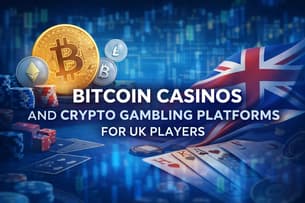
Why Online Anonymity Matters More Than Ever for Gamers

Gaming has undergone significant changes over the past few years, shifting from a behind-the-scenes activity to one that is more visible, with a username. Nowadays, it’s social and public. Gamers have increasingly started streaming online, thanks to platforms like Twitch, and with the help of TikTok, sharing their content has become much easier.
This shift has made gaming more accessible than ever, but it has also made it more vulnerable to exploitation. As players spend more time online, they become increasingly exposed to threats like harassment, scams, and doxxing. In the early days, online anonymity used to be just a preference, now it's a crucial layer of protection. Let’s explore why maintaining online anonymity is no longer optional, but essential.
The Fine Line Between Identity and Persona in Gaming
Most gamers don’t use their real name as their username. Instead, they create online personas, avatars, or characters. These characters enable players to express themselves in various ways, providing them with the opportunity to be part of the online community while maintaining their anonymity.
However, this line is very thin, as distinguishing between your online persona and your real identity can become blurry. Once this line fades, it can leave gamers open to risks like doxxing and others, which we will get into. Here is how your information can become vulnerable:
- Reusing the same username across different platforms or websites
- Posting personal information or photos online
- Connecting your gaming accounts with social media platforms
When the wall between your real identity and your online persona falls, your information is exposed and puts you in a vulnerable position.
The Real-World Consequences of Online Exposure
When someone’s information is leaked, it can be easily used against them. This is called doxxing - when someone shares your personal and sensitive information without your consent or knowledge. It can often lead to harassment, stress, or threats.
Some of the risks also include:
- Hateful messages or calls
- Being stalked or impersonated online
- Swatting - this means that someone sends police to your address with a fake report
- Losing a job
- Feeling stressed, anxious, unsafe, or generally under emotional distress
What’s important to keep in mind is that this not only happens to popular streamers, but also to regular players. Regular players can be easily targeted for various reasons, including speaking out, winning a match, or simply being visible in the community.
Why Gamers Are Prime Targets for Doxxing
The truth is - gaming communities are active, competitive, and sometimes even intense. That’s ultimately what makes them fun - but also, risky.
Specific players can be targeted, including:
- Streamers and content creators: They are almost always online and easy to target
- Competitive players: It’s easy to get carried away when competing, which is why emotions can run high in tournaments
- Moderators: Enforcing rules can result in receiving some backlash
Why This Happens
There are a few reasons behind why this happens, some of which include:
- Live content makes it easier to get personal details
- Players can get emotional and lash out in toxic ways
- Some platforms don’t do enough to stop abuse
- Trolling and personal attacks are still common in many gaming spaces
This is why maintaining your online identity privacy is crucial in today’s gaming community. It's like armor in your favorite game.
Digital Safety Measures and Proactive Privacy
Staying safe online is not just about using software—it’s about being smart and making wise decisions. You should always think twice about what you share online and with whom you share it. It’s about developing the proper habits and being mindful of potential risks.
Here are a few tips and tricks on how you can stay safe while gaming:
- Use a separate email for gaming
- Avoid linking social media to your gaming account
- Use new usernames on different websites, and avoid repeating the same one
- Think twice before sharing photos or sensitive information
- Turn off your location
- Keep your gaming profiles separate from your private or work-related accounts
It's essential to regularly review and update the privacy settings of the platforms you use, in addition to these steps. Take the time to review and update your privacy settings, as every gaming platform offers a unique set of options for securing your data. Voice and video chats can unintentionally disclose personal information, so be cautious when using them, especially during live streams.
Also, pay attention to who you're engaging with in-game. Even in private conversations, it's best to avoid sharing too much information, as it could still be captured on screen or shared without your permission. Using the appropriate tools is essential, but so is taking proactive measures to protect your online privacy.
Privacy Is a Game-changer
Privacy is a personal matter, not only a technical one. It allows gamers to be themselves without worrying about criticism or risk. It encourages safe creation, competition, and connection.
Gamers can fully enjoy their playing time without endangering their mental health, physical safety, or online freedom when they have control over what information they share and with whom. Online anonymity is about taking charge, not hiding, in a time when exposure is unavoidable and dangers are real. And that control is more crucial than ever in the modern game environment.

Kateryna Prykhodko er en kreativ forfatter og pålitelig bidragsyter hos EGamersWorld, kjent for sitt engasjerende innhold og sin sans for detaljer. Hun kombinerer historiefortelling med tydelig og gjennomtenkt kommunikasjon, og spiller en viktig rolle både i plattformens redaksjonelle arbeid og i interaksjonen bak kulissene.
 Hytale: Ryggsekkoppskrift og veiledningHer er guiden din til hvordan du lager en ryggsekk i Hytale, slik at du kan utvide beholdningen din for større eventyr i Orbis.
Hytale: Ryggsekkoppskrift og veiledningHer er guiden din til hvordan du lager en ryggsekk i Hytale, slik at du kan utvide beholdningen din for større eventyr i Orbis. Roblox Anime Guardians Koder februar 2026Oppdag alle fungerende Roblox Anime Guardians-koder. Løs inn gratis Mystic Coins, Trait Rerolls, Artefakter og belønninger.
Roblox Anime Guardians Koder februar 2026Oppdag alle fungerende Roblox Anime Guardians-koder. Løs inn gratis Mystic Coins, Trait Rerolls, Artefakter og belønninger. Ikke-britiske nettkasinoer: Spill, formater og hva spillere kan forventeNettkasinoer som opererer utenfor det britiske rammeverket for pengespill, tiltrekker seg oppmerksomhet på grunn av forskjeller i lisensmodeller, spillporteføljer og...
Ikke-britiske nettkasinoer: Spill, formater og hva spillere kan forventeNettkasinoer som opererer utenfor det britiske rammeverket for pengespill, tiltrekker seg oppmerksomhet på grunn av forskjeller i lisensmodeller, spillporteføljer og... Bitcoin-kasinoer og kryptospillplattformer for britiske spillereKryptobaserte spillplattformer har blitt et merkbart segment av det globale markedet for nettkasinoer.
Bitcoin-kasinoer og kryptospillplattformer for britiske spillereKryptobaserte spillplattformer har blitt et merkbart segment av det globale markedet for nettkasinoer.





